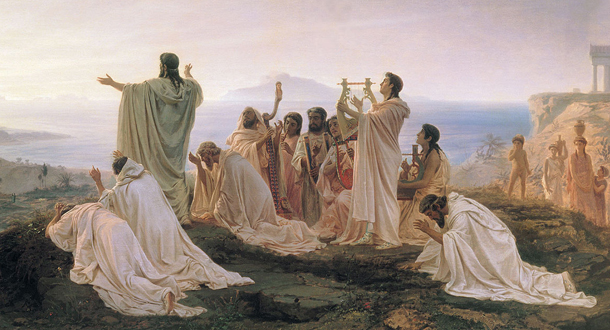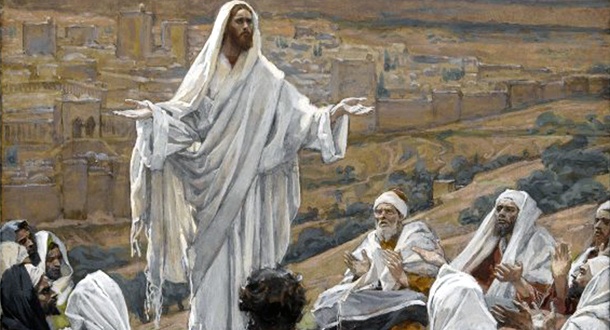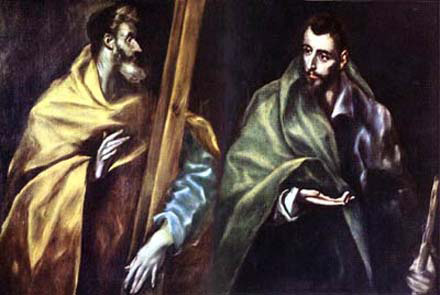
Scripture:
Reflection:
Why are the disciples sad? Why do they grieve? They mourn because Jesus is about to leave them. He reassures them that contrary to their feelings of sadness, it is better that he goes. Only then can he send the Spirit, the Paraclete, to them and us.
Don’t we sometimes feel like the disciples? Wouldn’t it be wonderful to have Jesus among us today? If we could just see him, hear him, being a Christian would be easier, and our faith might be more robust.
This way of thinking makes sense in our world of technology, proof, facts, seeing, and touching. The disciples had a significant advantage over us. They got to walk with Jesus, sit at his feet, and learn from him. How can it be better that he leave?
Think about it. The Jesus we want among us is the Jesus of history, a man who lived in a particular time and place. Jesus was a first-century Jew who lived in a small corner of Palestine.
The particularity of Jesus was necessary in our salvation history. More than 2,000 years ago, Jesus ministered, healed, and proclaimed the good news: The Kingdom of God is at hand. He died on a cross. He was risen from the dead. And he tells his disciples in today’s gospel, it is time that he returns to the Father.
But he quickly adds, get ready because I will send the Paraclete to you; I will unleash the power of the Holy Spirit among you. It is through the Spirit that Jesus will continue his work through his disciples – and not just in a remote geographic location, but in all times and in all places on earth.
Today’s reading from the Acts of the Apostles gives us a glimpse of what life in the Spirit looks like. The Romans have imprisoned Paul and Silas to silence them from preaching the Good News of Jesus Christ. But a miraculous earthquake frees them from prison bars. The Spirit cannot be imprisoned, cannot be contained.
First, the guard and his family came to believe in Jesus through the power of the Holy Spirit.
Then, the guard welcomed Paul and Silas into his home to feed them and tend to their wounds.
What have we witnessed? Through Paul and Silas, the Holy Spirit has brought about the radical conversion of the prison guard and his family. Then, the guard’s conversion leads him to offer hospitality to the disciples.
The Holy Spirit was at work, giving the guard the gift of faith and empowering him to love the men who had just previously been his enemy.
These are examples of the power of the Holy Spirit as we cooperate with the Spirit’s continual grace in us. This is what Jesus meant when he proclaimed the Good News: The Kingdom of God is near. Jesus, the incarnation of God, has entered our world. The reign of God has begun, and it will be fulfilled at his second coming. In the meantime, the Holy Spirit dwells with us – at work, inspiring us to faith, hope, and most of all to love.
Jesus does not abandon us. Rather, through the indwelling of the Holy Spirit, Jesus is still with. As with every generation of Christian since the disciples, it is now our turn to continue the ministry of Jesus: to care for one another, to love one another. In other words, filled with the Holy Spirit, we are summoned to proclaim the Good News — That the Reign of God is near us in Christ Jesus.
Deacon Manuel Valencia is on the staff at Mater Dolorosa Passionist Retreat Center, Sierra Madre, California.







